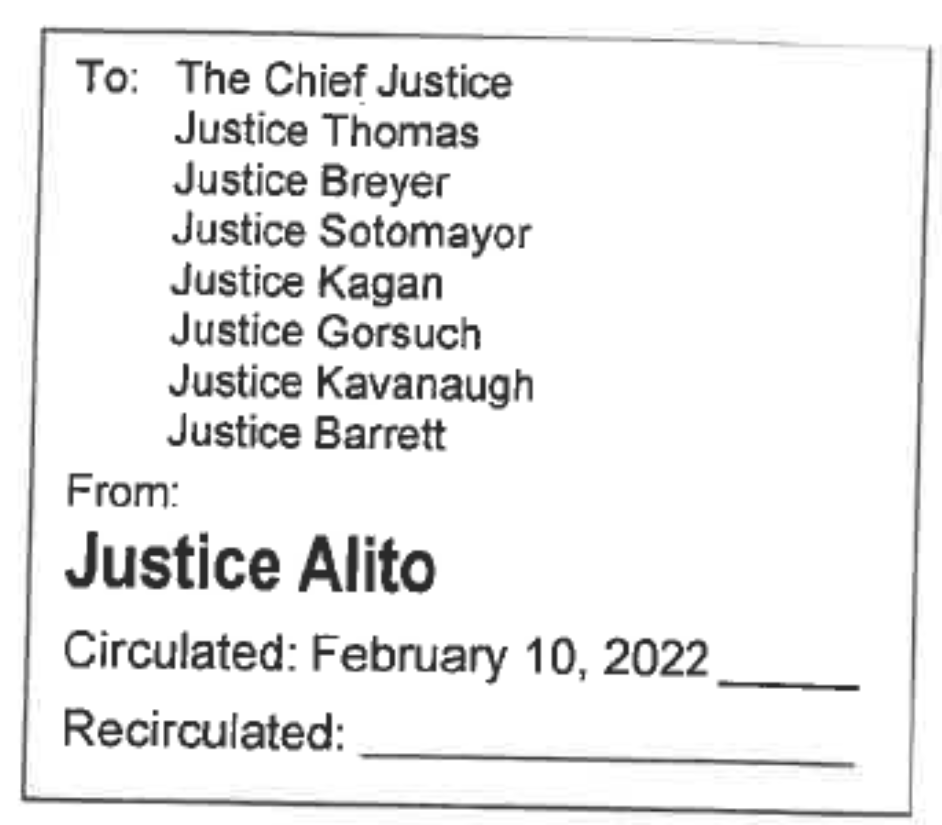On May 2, 2022, the Washington, D.C.-based political news site Politico dropped a bombshell: a leaked draft of an opinion in the case Dobbs v. Jackson Women’s Health Organization, purportedly written by United States Supreme Court Associate Justice Samuel Alito, that overturned Roe v. Wade and would consequently end a woman’s right to choose to have an abortion. In the days that followed, scholars and journalists puzzled over every aspect of the story. Who leaked the draft? Did Justice Alito really write it? Was the draft accurate? Was the Court really about to end a woman’s right to choose?

The answers quickly followed as Chief Justice Roberts confirmed the legitimacy of the leaked draft. Only the leaker’s identity remains shrouded in mystery. Since early May, activists, journalists, scholars, and others have anxiously awaited the Court’s distribution of the finalized decision.
An undercurrent in the tidal wave of commentary on the Dobbs draft has concerned Justice Alito’s historical analysis that serves as the foundation of his decision to overturn Roe v. Wade. Constitutional law scholars such as Aziz Huq have explained: “For instance, the draft majority opinion spills a good deal of ink on the history of abortion regulation in England and the United States (skimming over, as it does it, the considerable periods in which abortion was left to the free choice of women).”
The scholars involved in this special issue approached The Docket in the spirit of trying to add levels of historical context to the discussion of Dobbs. We hope that readers will appreciate these scholars attempt to bring a new dimension to this pressing public concern.
Law and History Review also opened access to numerous scholarly articles that have addressed the right to privacy, the right to an abortion, and the history of regulation of privacy and abortion rights in United States history. Readers can consult our twitter thread with links to articles and book reviews.

